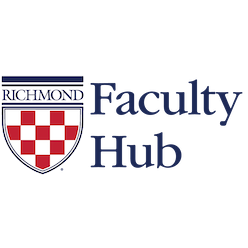We hope that these summer months have been going well for everyone. We are looking forward to having you back on campus and have prepared an assortment of programming to help you start the semester off on the right foot.
Author: Jane Bise
Take Charge of Your Summer!
Summer is here, and you may have some big plans for your scholarship and creative work. We hope we can help you along the way through our summer writing groups, retreats, resources, writing consultants, one-on-one coaching and consultations, and a book proposal group. Keep reading to learn more, and be sure to scroll all the way down to see what question Andrew is wrestling with in his blog this month.
Faculty Hub May Daze
As you finish up these busy days of April and May, we invite you to end your semester on a high note with programming to help you reflect on the academic year and prepare for a fruitful summer. Our reinvigorating May Daze Schedule is below. Read on for more detailed information. If you want to finish grading or get a jump start on writing before May Daze begins, please join us for our Writing and Grading Retreat on Tuesday, April 30, and/or Wednesday, May 1, from 9 a.m. to 3 p.m.
Please see the full schedule here. Note that we have rescheduled two events on Monday, May 13, to avoid conflicts with other campus events that day. The updated schedule is below. We apologize for the inconvenience, and we hope you can join us!
Summer Research Prep Day – Monday, May 13
- Authors’ Rights: Use the Law, Share Your Scholarship, Change the World from 11:00 a.m. – 12:00 p.m.
- R Studio on Spiderweb from 11:00 a.m. – 12:00 p.m. *NEW TIME
- Jupyter Lab on Spiderweb from 12:00 – 1:00 p.m.
- An Introduction to Using LLMs Within Quantitative Workflows from 3:00 – 4:00 p.m. *NEW TIME
Fresh Perspectives
Spring brings abundant flowers, fuzzy goslings, longer days, and a chance to look at things a bit differently as we emerge from our winter cocoons. In that spirit of spring, we invite you to explore the upcoming April offerings at the Faculty Hub. Learn from other faculty at the Celebration of Teaching. Consider a new opportunity like the Inclusive Pedagogy Partnership Program (IP3). Think ahead to the effect the 2024 elections will have on your classroom. Get inspired (or at least do some grading) at one of our upcoming Writing and Grading Retreats. Explore various AI topics at one of the three AI talks on campus this month, including one this afternoon on AI & Ethics. And if you check out Andrew’s blog, you *might* get to see a photo of him at a Weezer show in 2001.
Halfway There
As we near the midpoint of the semester, we hope all is going well. Midterm can be a good time to gather feedback from your students about their experiences in your courses so far. See our tipsheet on “Gathering Feedback from Students” for ideas, formats, and resources for doing so! You can also reach out to the Faculty Hub to schedule a one-on-one consultation about designing a feedback survey for your particular goals and teaching context.
Spreading the Love
| There is much to love at the Faculty Hub and beyond this month. An adjunct conversation, a writing challenge, a writing retreat, an AI workshop on LLMs, and facilitated course assessments. Oh, and we also started a puzzle on the touchdown table if you are into that kind of thing 🙂 There are some other great opportunities we are happy to share as well, including the River City Project, hosted by one of our campus partners, UR’s Office for Sustainability, an NCFDD webinar, a VIVA Workshop and course grants, the 2024 Innovations in Pedagogy Summit at UVA…and print UR Own V-Day cards with UR Book Arts. Be sure to scroll all the way down to see the ten things Andrew shared this month on his blog. There are some good ones! Read more here. |
Spring Preview
We are glad everyone made their way back! We hope you will join us for our Welcome Back Breakfast on January 19 from 8:30 to 10:30 a.m. to reconnect with colleagues and enjoy some back-to-school sustenance here in the Faculty Hub on the third floor of Boatwright Library. We’ll have breakfast goodies, coffee, and door prizes.
Ease Into the Semester
|
End With a Bang!
You don’t have to face those end-of-semester tasks alone! Join us for a writing and grading retreat here in the Faculty Hub on Tuesday, December 12. We’ll provide all participants with lunch, seasonal goodies, and beverages (coffee, tea, hot chocolate, and more) all day long. Come on by and get cozy. Stay for any amount of time that works for you between the hours of 9 a.m. and 3 p.m.
Please also note that the Pedagogy and Generative AI Faculty Exchange date was incorrect in this newsletter. It is on Wednesday, January 10.
Thankful for the Little Things
We here at the Faculty Hub are grateful to be working with so many engaged and committed faculty, staff, and administration members here at UR. We’re sending you best wishes as we head into the last part of the semester and the end of the calendar year.
